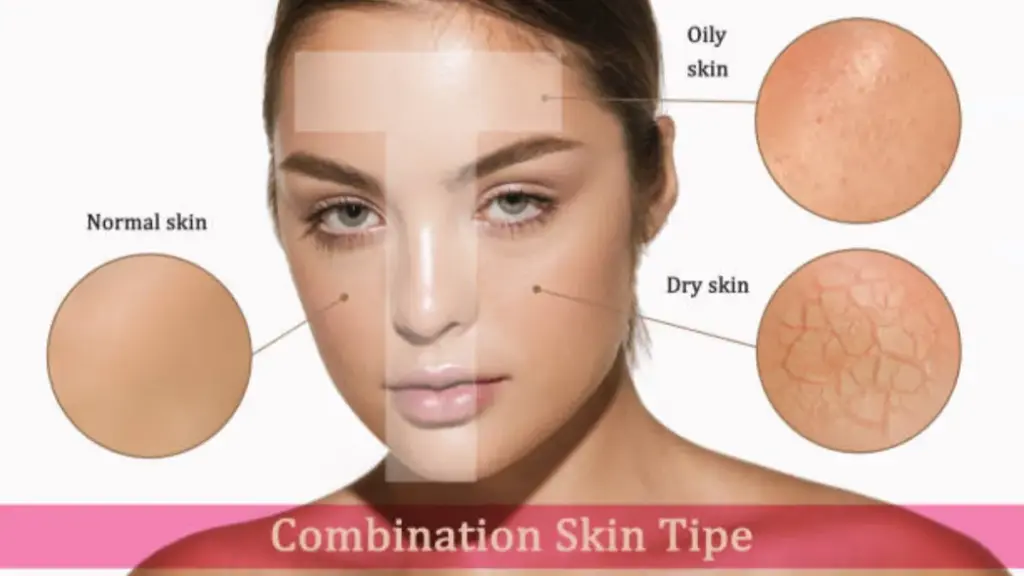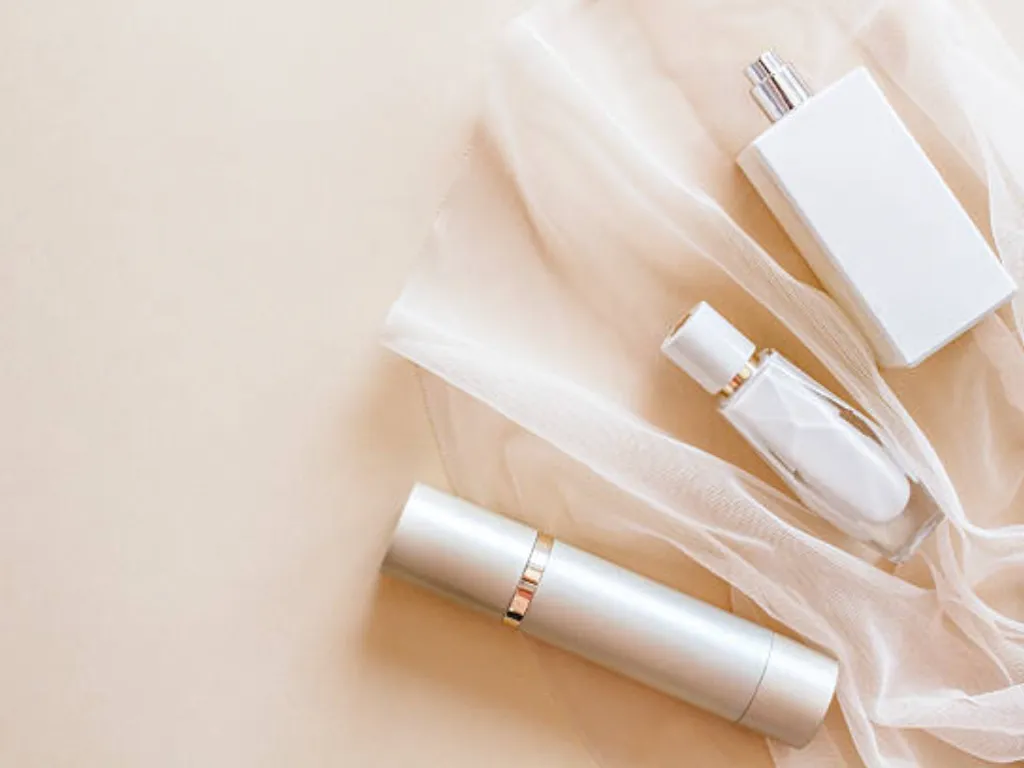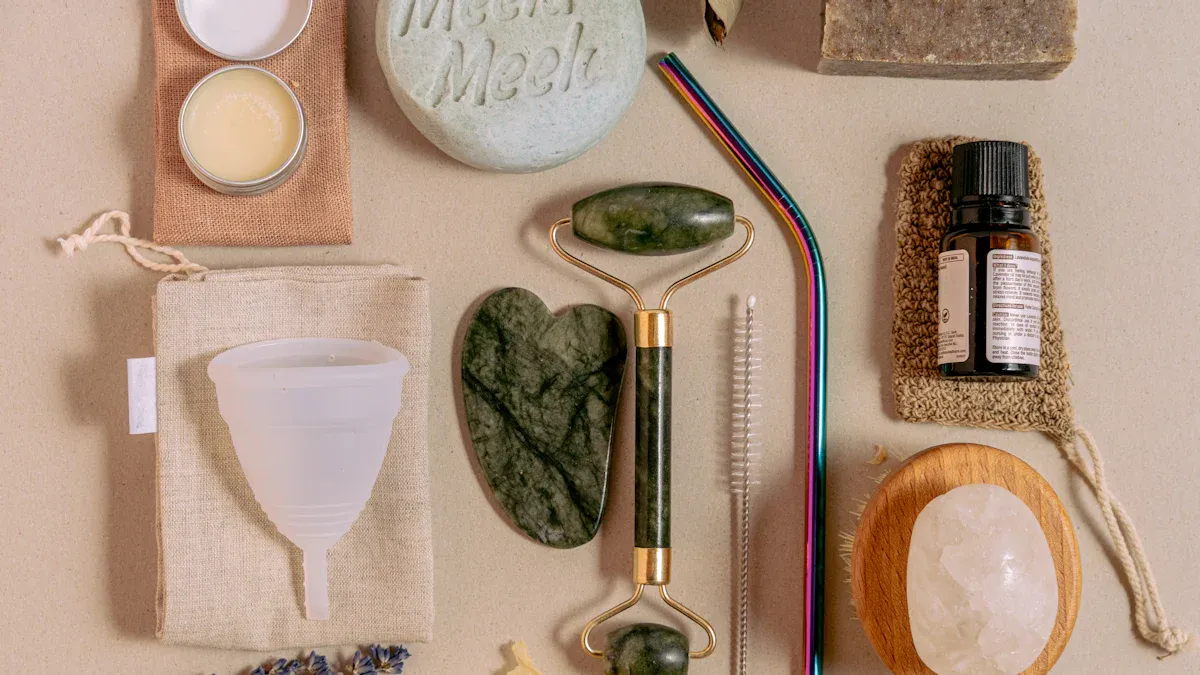
Skincare manufacturing offers you a chance to tap into a booming industry with immense growth potential. السوق العالمية للعناية بالبشرة, valued at over $146.7 مليار في 2021, ومن المتوقع أن تصل $273.3 مليار من قبل 2031. The Asia-Pacific region alone is growing at a compound annual growth rate of 6.8%, signaling rising demand worldwide. Whether you dream of creating luxurious facial creams or innovative body care products, this industry enables you to bring your ideas to life while meeting the needs of a growing audience.
Understanding Skincare Manufacturing
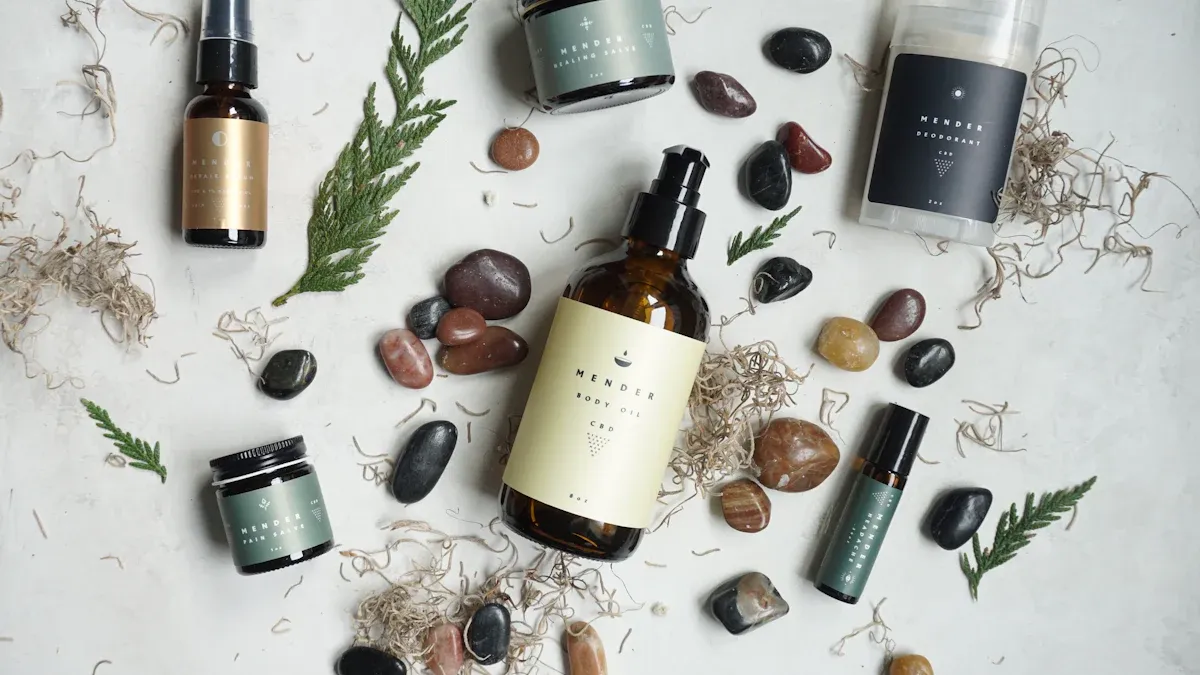
What Is Skincare Manufacturing
Skincare manufacturing involves creating products designed for external application on the skin. These products aim to improve skin health, مظهر, and overall care. The process combines organic and inorganic compounds to develop items like moisturizers, المنظفات, وواقيات الشمس. You must follow strict regulations to ensure safety and quality. This industry has seen rapid growth due to technological advancements and increasing consumer awareness about personal care.
Key steps in skincare manufacturing include:
Developing a business plan to outline your goals and strategies.
Conducting research and development to innovate and improve formulations.
Selecting safe and effective ingredients tailored to specific skin needs.
Designing packaging that reflects your brand identity.
Ensuring proper delivery to maintain product quality.
Types of Skincare Products You Can Manufacture
The skincare industry offers a wide range of products to manufacture. Each type caters to specific consumer needs and preferences. Here’s a breakdown of popular options:
Skincare Product Type | Percentage of Consumers Using |
|---|---|
Facial Cleansers | |
Moisturizers and Creams | 68% |
Anti-aging Products | 47% (مسن 45+) |
Body Lotions and Creams | 65% |
واقي الشمس | 59% |
Exfoliating Scrubs | 37% |
You can also explore trends like natural and clean ingredients, which appeal to eco-conscious consumers. على سبيل المثال, 59% of consumers prefer natural products, بينما 54% prioritize clean formulations.
Key Components of the Manufacturing Process
Creating skincare products requires attention to detail and adherence to industry standards. The following components are essential:
Rigorous Testing: Perform skin irritation tests, stability tests, and microbiological screenings to ensure safety and efficacy.
الامتثال للوائح: Meet local and international cosmetic regulations to legally market your products.
Quality Control Measures: Follow Good Manufacturing Practices (GMP) and conduct regular testing of raw materials and finished products.
Technology plays a vital role in improving production efficiency and product personalization. على سبيل المثال, advancements like AI and IoT help brands create customized skincare solutions. By focusing on these components, you can ensure your products meet consumer expectations and industry standards.
Steps to Start Skincare Manufacturing
Researching the Market and Identifying Your Niche
Understanding your target market is the first step in building a successful skincare manufacturing business. You need to identify gaps in the market and focus on a niche that aligns with consumer needs. Market research helps you evaluate consumer preferences, product effectiveness, and brand appeal. This analysis allows you to create a strategic roadmap for product development and marketing.
To identify profitable niches, اتبع هذه الخطوات:
Use tools like Ubersuggest, Google Keyword Planner, or Ahrefs to analyze search trends. Look for keywords with a monthly search volume between 1,000 و 15,000. These often indicate demand without excessive competition.
Validate your niche ideas by checking for active consumer interest. Ensure the market is not overly saturated.
Study emerging trends like natural ingredients, جمال نظيف, or personalized skincare. These areas often attract eco-conscious and health-focused consumers.
By narrowing your focus to a specific niche, you can tailor your products to meet the unique needs of your audience. This approach not only enhances your brand identity but also increases your chances of success in a competitive market.
Developing Product Formulations
Creating effective and safe skincare products requires careful formulation. This process involves selecting ingredients, testing combinations, and ensuring compliance with safety standards. Recent trends in formulation development emphasize customization, الاستدامة, and technological integration.
التخصيص والتخصيص: Consumers increasingly prefer products tailored to their unique skin needs. Advanced diagnostic tools and bio-designed ingredients allow you to create personalized solutions.
الاستدامة: الممارسات الصديقة للبيئة, such as zero-waste extraction, reduce environmental impact. These methods align with consumer demand for sustainable products.
Integration of Technology: Biotechnology enables the development of ingredients that support individual skin microbiomes. This innovation enhances product efficacy and promotes sustainability.
When developing formulations, prioritize safety and quality. Conduct rigorous testing, including stability and microbiological screenings. This ensures your products meet industry standards and deliver the desired results.
Sourcing Ingredients and Packaging Materials
The quality of your ingredients and packaging plays a crucial role in your product’s success. Consumers value transparency and sustainability, so sourcing high-quality, eco-friendly materials is essential.
Start by identifying suppliers who provide safe and effective ingredients. Look for certifications like organic, خالية من القسوة, or fair trade to build trust with your audience. Packaging materials should also reflect your brand values. على سبيل المثال, recyclable or biodegradable options appeal to environmentally conscious consumers.
Here’s a breakdown of estimated costs for sourcing and other essential expenses:
فئة النفقات | Low-End Cost | High-End Cost |
|---|---|---|
تطوير المنتج | $1,000 | $10,000+ |
تصنيع | $2,000 | $50,000+ |
التعبئة والتغليف ووضع العلامات | $500 | $5,000+ |
Website and E-commerce | $500 | $5,000+ |
Marketing and Branding | $1,000 | $20,000+ |
Legal and Regulatory | $500 | $5,000+ |
Miscellaneous | $500 | $5,000+ |
Total Range: $6,000 – $100,000+
By investing in high-quality ingredients and sustainable packaging, you can create products that resonate with your target audience. This approach not only enhances your brand reputation but also contributes to long-term success in skincare manufacturing.
Finding a Manufacturer or Setting Up Your Own Facility
Choosing between partnering with a manufacturer or establishing your own facility is a critical decision in skincare manufacturing. Each option has its advantages, and your choice depends on factors like budget, خبرة, and production goals.
Partnering with a Manufacturer
Working with a private label skin care manufacturer offers a streamlined approach to launching your products. Manufacturers like Oully provide end-to-end solutions, including custom formulations, تصميم التعبئة والتغليف, ودعم الامتثال. This option allows you to focus on brand development while leveraging the expertise of an experienced partner.
When selecting a manufacturer, النظر في ما يلي:
الشهادات: Ensure the facility holds certifications like FDA, ايزو, and cGMP to guarantee quality and compliance.
كميات الحد الأدنى للطلب (مو): Choose a manufacturer with flexible MOQs to accommodate your budget and production needs.
Services Offered: Look for additional services such as private labeling, dropshipping, and fast production turnaround.
سمعة: Research reviews and testimonials to assess the manufacturer’s reliability and quality standards.
Setting Up Your Own Facility
If you prefer full control over the production process, setting up your own facility may be the right choice. This option requires a significant investment in equipment, staff, and compliance measures. لكن, it allows you to oversee every aspect of production, from ingredient sourcing to quality control.
To establish your facility:
Invest in high-quality equipment that meets industry standards.
Hire skilled personnel with experience in skincare manufacturing.
Implement robust compliance support systems to adhere to regulations.
Conduct regular audits to maintain quality and safety standards.
Both options have their merits. Partnering with a manufacturer offers convenience and expertise, while owning a facility provides complete control over production. Evaluate your resources and long-term goals to make the best decision for your business.
ضمان الامتثال للمعايير التنظيمية
Compliance is a cornerstone of skincare manufacturing. Adhering to regulations ensures your products are safe, فعال, and legally marketable. Non-compliance can lead to fines, recalls, and damage to your brand reputation.
To maintain compliance:
Conduct regular internal audits to assess adherence to GMP guidelines.
Establish a supplier qualification process to verify the quality and safety of raw materials.
Implement rigorous quality control measures to ensure each product batch meets specifications.
Maintain accurate documentation for all processes, from formulation to distribution.
Stay updated with changing regulations through continuous monitoring and training.
Engaging regulatory experts can provide invaluable guidance. These professionals help navigate complex requirements and ensure your products meet local and international standards. By prioritizing compliance support, you protect your business and build trust with consumers.
Building Your Brand and Product Line
Brand development is essential for standing out in the competitive skincare market. A strong brand identity resonates with consumers and fosters loyalty. Start by defining your brand’s mission, قيم, والجمهور المستهدف.
Strategies for Effective Brand Development
بناء المجتمع: Create a sense of belonging among your customers. Engage them through social media groups, المنتديات, and events.
الاتصال العاطفي: Share personal stories that highlight your brand’s journey and values.
Visual Storytelling: Use high-quality visuals to showcase your products and brand narrative.
Interactive Content: Offer quizzes, live sessions, and tutorials to engage your audience.
الممارسات الأخلاقية: Highlight your commitment to sustainability and cruelty-free practices.
Expanding Your Product Line
Diversifying your product offerings can attract a broader audience. Consider trends like natural ingredients, جمال نظيف, والعناية الشخصية بالبشرة. على سبيل المثال, developing a fully natural shampoo or a self-tanner that meets clean beauty standards can appeal to health-conscious consumers.
By focusing on brand development and product innovation, you can create a unique identity that resonates with your target market. This approach not only drives sales but also establishes your brand as a trusted name in skincare manufacturing.
Choosing the Right Manufacturer for Private Label Skin Care
Selecting the right manufacturer is a pivotal step in private label skin care. Your choice directly impacts product quality, brand reputation, ورضا العملاء. By evaluating key factors, you can ensure your partnership aligns with your business goals.
Factors to Consider When Selecting a Manufacturer
When choosing a manufacturer, you need to assess their capabilities and services. The following factors can guide your decision:
عامل | وصف |
|---|---|
Product Variety | Manufacturers should offer a range of products that align with your niche, ensuring quality meets your brand standards. |
كميات الحد الأدنى للطلب | Low or flexible MOQs allow you to test products without significant financial risk, helping to evaluate the manufacturer’s reliability. |
الشهادات | Recognized certifications (على سبيل المثال, عضوي, خالية من القسوة) enhance your brand credibility and align with customer values. |
Packaging Customization | The ability to customize packaging is crucial for brand identity and customer appeal, with some manufacturers offering branding support services. |
Pricing and Payment Terms | It’s important to find a balance between cost and quality, ensuring that pricing reflects your brand experience while maintaining a decent margin. |
Testing Samples | Testing product effectiveness, التعبئة والتغليف, skin compatibility, and overall quality is essential before launching to ensure customer satisfaction and transparency. |
By focusing on these factors, you can identify a manufacturer that supports your vision and delivers high-quality products.
Understanding Minimum Order Quantities (مو)
كميات الحد الأدنى للطلب (مو) play a significant role in private label manufacturing. They determine the minimum number of units you must purchase per order. Understanding MOQs helps you manage costs and inventory effectively.
وجه | Impact of MOQ on Skincare Manufacturing |
|---|---|
Production Costs | Higher MOQs can lead to economies of scale, reducing costs. |
إدارة المخزون | MOQs influence how much inventory is held, affecting cash flow. |
استراتيجيات التسعير | MOQs can dictate retail pricing based on production costs. |
Flexible MOQs are particularly beneficial for new brands. They allow you to test products without committing to large quantities, reducing financial risk. Manufacturers like Oully offer low MOQs, enabling you to scale production as your business grows.
Evaluating Manufacturer Services (على سبيل المثال, وضع العلامات الخاصة, تركيبات مخصصة)
Manufacturer services like private labeling and custom formulations provide unique opportunities to differentiate your brand. These services allow you to create products tailored to your audience while maintaining control over branding and profit margins.
Private label skincare products are increasingly seen as high-quality, bespoke options. Consumers often perceive them as equal to or better than traditional brands in terms of efficacy and value.
Custom formulations enable you to address specific customer needs, fostering loyalty and trust. على سبيل المثال, you can develop products for sensitive skin or eco-conscious buyers.
Private label manufacturing offers financial advantages, including better control over profit margins and flexibility in order management. These benefits are essential for scaling your business.
Many consumers who switch to private label products continue using them due to satisfaction with quality and cost-effectiveness. This loyalty drives long-term growth for your brand.
Partnering with a manufacturer that offers these services ensures your products stand out in a competitive market. Companies like Oully provide end-to-end support, from formulation to packaging design, helping you bring your vision to life.
Questions to Ask Potential Manufacturers
Choosing the right manufacturer for your skincare products is a critical step in building a successful brand. Asking the right questions ensures you partner with a manufacturer that aligns with your goals and values. Here are some essential questions to guide your decision-making process:
1. What Ingredients and Processes Do You Use?
Understanding the origin and quality of ingredients is vital for building trust with your customers. Ask about the cell types and sources used to derive key components, such as exosomes. Inquire about how donors are tested to ensure the safety and efficacy of the raw materials. بالإضافة إلى ذلك, clarify how the exosomes or other active ingredients are produced. على سبيل المثال, if bioreactors are used, ask how the health and quality of the cells are monitored during production. These details help you assess the reliability of the manufacturing process.
2. How Do You Ensure Product Consistency?
Consistency is key to maintaining customer satisfaction. Ask if there is lot-to-lot variability in the production process. Variability can affect the performance of your products, leading to customer dissatisfaction. Manufacturers should have robust quality control measures in place to minimize inconsistencies. أيضًا, inquire about how the final product is tested for safety and effectiveness. Reliable manufacturers will conduct thorough testing to validate the quality of each batch.
3. What Testing and Certifications Do You Provide?
Certifications and testing results add credibility to your brand. Confirm whether the manufacturer holds certifications such as FDA, ايزو, أو المركب. These certifications indicate compliance with industry standards. بالإضافة إلى ذلك, ask if the manufacturer conducts clinical or customer perception testing. While these tests can be expensive, they provide valuable insights into product performance. Some manufacturers may rely on testing from ingredient suppliers or academic studies, so ensure you understand their approach.
4. What Are Your Minimum Order Quantities (مو)?
MOQs play a significant role in managing your budget and inventory. Flexible MOQs allow you to test products without committing to large quantities. This is especially beneficial for new brands entering the market. Manufacturers like Oully offer low MOQs, enabling you to scale production as your business grows. Discussing MOQs upfront helps you plan your production and pricing strategies effectively.
5. What Customization Options Do You Offer?
Customization is essential for creating a unique brand identity. Ask if the manufacturer provides private label skincare options or custom formulations. Private label skin care allows you to launch high-quality products under your brand name without the need for extensive R&د. تركيبات مخصصة, على الجانب الآخر, enable you to develop products tailored to your target audience. Understanding the level of customization available helps you differentiate your brand in a competitive market.
6. What Support Services Do You Provide?
A reliable manufacturer should offer more than just production services. Ask about additional support, such as packaging design, dropshipping, and compliance assistance. These services can streamline your operations and help you focus on marketing and brand development. على سبيل المثال, a manufacturer that provides end-to-end support can save you time and resources, allowing you to bring your products to market faster.
Summary of Key Questions
Question | لماذا يهم؟ |
|---|---|
What cell type and source do you use to derive the exosomes? | Ensures ingredient credibility. |
Verifies safety and efficacy. | |
How are the exosomes produced? | Clarifies production reliability. |
If they are made in bioreactors, how do you know the health and quality of the cells excreting the exosomes? | Addresses quality control. |
Is there lot-to-lot variability? | Ensures product consistency. |
How is the final product tested? | Validates safety and effectiveness. |
By asking these questions, you can evaluate potential manufacturers thoroughly. This ensures you choose a partner that aligns with your vision and helps you deliver high-quality products to your customers.
Scaling and Marketing Your Skincare Manufacturing Business
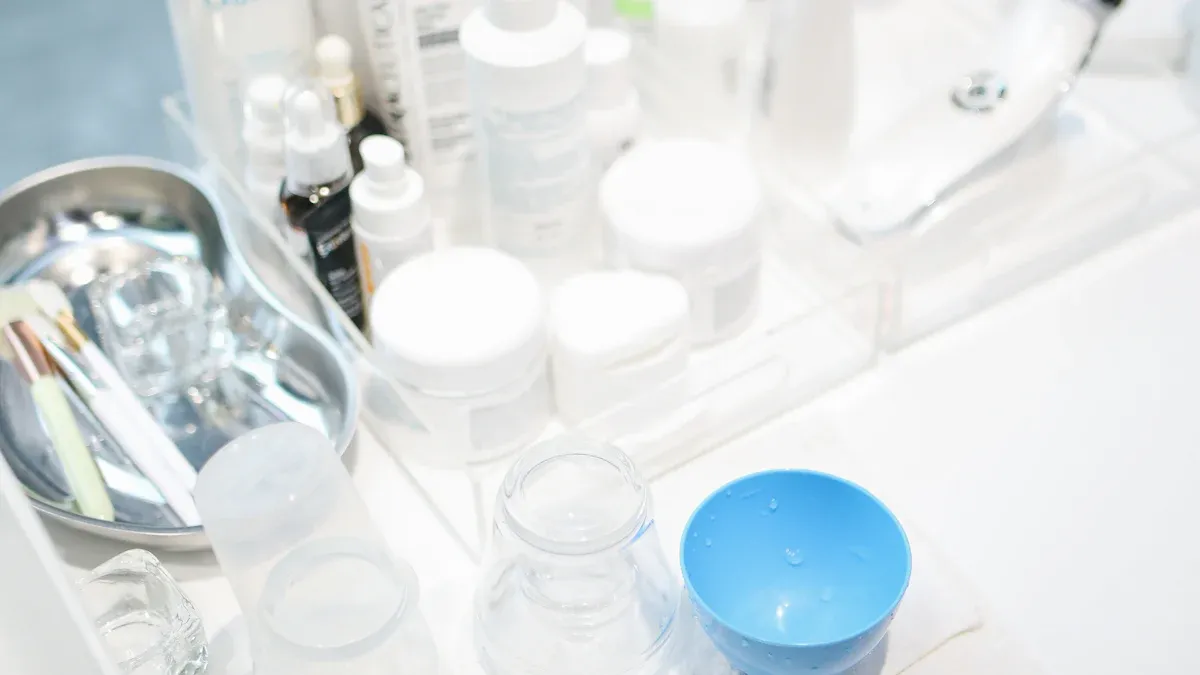
Expanding Your Product Line
Expanding your product line allows you to meet diverse customer needs and stay competitive in the skincare market. Consumers are increasingly drawn to specialized and innovative products. You can tap into this demand by introducing new items that align with current trends.
ال skincare market includes segments like Facial Care, رعاية الشفاه, and Body Care.
Organic skincare products are gaining popularity as consumers avoid harmful chemicals.
Urban buyers are purchasing more skincare products due to higher disposable incomes.
Innovative launches, such as sheet masks by Kao Corporation, highlight the demand for unique solutions.
Mergers and acquisitions among major players are enhancing market presence.
To expand effectively, focus on creating products that resonate with your audience. على سبيل المثال, you could develop eco-friendly facial cleansers or anti-aging creams with natural ingredients. Intense advertising and marketing strategies can further boost the visibility of your new offerings.
Leveraging Digital Marketing and Social Media
Digital marketing is a powerful tool for growing your skincare business. Social media platforms allow you to connect with your audience, اعرض منتجاتك, وبناء الولاء للعلامة التجارية. Successful strategies include influencer partnerships, targeted campaigns, والمحتوى الجذاب.
استراتيجية | شهادة |
|---|---|
Influencer Marketing | 75% من المستهلكين are more likely to purchase after seeing a product endorsed by an influencer. |
Social Media Marketing | 73% of marketers find social media marketing ‘somewhat effective’ or ‘very effective’. |
Product Research | 54% of social browsers use social media to research products. |
You can use video content, such as tutorials and product demonstrations, to engage viewers. Partnering with beauty vloggers for reviews can also leverage their loyal followers. Targeted campaigns help you reach larger audiences and create interactive experiences. Understanding cultural norms, like those in Korean beauty trends, can strengthen your online presence and attract global customers.
Building Partnerships and Distribution Channels
Strategic partnerships and distribution channels are essential for scaling your skincare brand. Collaborating with the right partners helps you reach more customers and build loyalty.
Evaluate existing channels and partners to identify those generating the most sales.
Explore new opportunities, such as online platforms and influencers in the skincare industry.
Negotiate agreements that define roles, المسؤوليات, and expectations.
Manage relationships by monitoring performance and providing support or training.
على سبيل المثال, partnering with e-commerce platforms can expand your reach to international markets. Collaborating with retail chains ensures your products are accessible to local buyers. By optimizing these relationships, you can scale your business effectively and maintain consistent growth.
Monitoring Trends and Adapting to Market Demands
Staying ahead in skincare manufacturing requires you to monitor trends and adapt your products to meet evolving consumer demands. The beauty industry constantly shifts, driven by changes in technology, social behavior, والمخاوف البيئية. By keeping a pulse on these trends, you can create products that resonate with your audience and maintain your competitive edge.
Key Trends Shaping the Skincare Industry
Sustainability and Ethics: Consumers prioritize eco-friendly practices and recyclable packaging. Many buyers actively seek brands that demonstrate a commitment to reducing environmental impact.
Personalized Beauty Solutions: The demand for tailored skincare products continues to grow. People want items that address their unique skin concerns, such as sensitivity or hydration needs.
Clean Beauty Movement: Shoppers increasingly prefer products with safe, المكونات مصادر أخلاقيا. This trend reflects concerns about health and transparency in manufacturing.
تأثير وسائل التواصل الاجتماعي: Platforms like Instagram and TikTok shape beauty trends. Influencers and product reviews significantly impact purchasing decisions and drive product discovery.
How to Adapt to Market Demands
To align your skincare business with these trends, focus on innovation and responsiveness. Start by incorporating sustainable practices into your manufacturing process. Use biodegradable packaging and source ingredients responsibly. Highlight these efforts in your branding to attract eco-conscious consumers.
Personalization is another area to explore. Offer diagnostic tools or quizzes that help customers find products suited to their skin type. Develop formulations that cater to specific needs, such as anti-aging or acne treatment.
Leverage social media to connect with your audience. Share engaging content, such as tutorials or behind-the-scenes videos, to showcase your brand’s values. Collaborate with influencers who align with your mission to amplify your reach.
نصيحة: Regularly analyze customer feedback and market data to identify emerging trends. This proactive approach ensures your products stay relevant and competitive.
By adapting to these demands, you can position your brand as a leader in the skincare industry while building trust and loyalty among your customers.
Starting your skincare manufacturing journey can be both exciting and rewarding. By focusing on compliance, جودة, والعلامات التجارية, you can create products that stand out in a competitive market.
Key Takeaways:
Research your niche and develop unique formulations.
Partner with reliable manufacturers or set up your own facility.
Stay compliant with regulations and prioritize sustainability.
نصيحة: Begin today by exploring market opportunities and building a strong foundation for your brand. The skincare industry is thriving—your vision could be the next big success!
التعليمات
What is the minimum investment required to start skincare manufacturing?
The minimum investment depends on your approach. Partnering with a manufacturer like Oully requires less capital, starting around $6,000. Setting up your own facility involves higher costs, often exceeding $50,000. Begin small and scale as your business grows.
How do I ensure my skincare products are safe for consumers?
You must conduct rigorous testing, including stability, microbiological, and skin irritation tests. Partnering with certified manufacturers ensures compliance with safety standards. Always document your processes to maintain transparency and trust.
Can I start a skincare brand without owning a manufacturing facility?
نعم, you can partner with private label manufacturers. They handle production, صياغة, and packaging while you focus on branding and marketing. This approach reduces costs and simplifies the process for new entrepreneurs.
How long does it take to launch a skincare product?
The timeline varies based on factors like formulation development and regulatory approvals. Manufacturers like Oully offer fast production turnarounds, often completing orders within 47 أيام. Plan for additional time for branding and marketing.
What certifications should I look for in a skincare manufacturer?
Look for certifications like FDA, ايزو, و المركب. These ensure the manufacturer follows strict quality and safety standards. Additional certifications, such as organic or cruelty-free, enhance your brand’s credibility with consumers.
نصيحة: Always verify certifications and request documentation to ensure compliance with industry standards.

